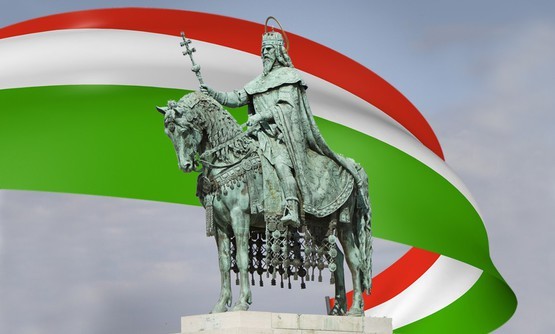Europe celebrates a fascinating mix of culture, history, and modern accomplishments every August 20. This day has special significance for millions of people across the continent, from the most significant national holiday that commemorates Hungary’s statehood to scientific anniversaries and events that raise awareness of global issues. Unity, tradition, and progress are celebrated today in ways that are deeply rooted in European heritage.
Hungary’s St Stephen’s Day: The Foundation of a Nation
In Hungary, today celebrates St Stephen’s Day, one of the most significant national events in Central Europe. The holiday pays tribute to King Stephen I, who over a thousand years ago built the foundations of the Hungarian state. Hungarians honor their first Christian king on this day for uniting the nation under a single crown and religion.
In Budapest, the ceremonies begin with the raising of the national flag and continue with religious procession carrying the Holy Right Hand, a sacred object that is believed to be King Stephen himself. Parades, cultural performances, and the smell of freshly baked bread fill the streets as the blessing of the “new bread” represents both gratitude for the harvest and life renewal. Today is a day of celebration for Hungarians, not only because of their strong national identity but also because they have survived centuries of change, war, and revolution.
Europe’s Largest Fireworks and Cultural Festivities
One of Europe’s largest fireworks displays takes place in Budapest on August 20 each year, making for a stunning spectacle. The night sky is illuminated with vibrant colors as they are choreographed to music and stories that tell the story of Hungary’s transition from the past to the present along the Danube River banks. This breathtaking event attracts visitors from all over Europe, making it one of the most important celebrations on the continent.
Concerts, folk dances, and street fairs also take place throughout the capital. Hungarian wines, regional cuisine, and traditional crafts are on display, giving visitors and locals alike a taste of the country’s rich cultural heritage. The city’s bridges and rooftops are packed with spectators, while river cruises offer a unique perspective of the fiery show. Today is a day to remember not only history but also the spirit of peace and joy that unites people of all ages for a grand celebration.

Lake Balaton and Regional Traditions
Even though Budapest is where the festivities are held, the rest of Hungary joins in with the same level of enthusiasm. As the “Hungarian Sea” of Lake Balaton, it draws tourists and families looking for a more laid-back way to celebrate. Folk festivals, concerts by the lake, wine tastings in the Badacsony region, and other events give the vacation a more intimate feel. Visitors will never forget the sight of the fireworks reflecting in the calm waters of Balaton.
Parades, fairs, and religious services in smaller towns like Esztergom, Szeged, and Debrecen are examples of local customs. The holiday is more community-driven and less commercial in these areas, where neighbors gather to share meals and carry on traditions that have been passed down through the generations. Whether in the bustling streets of Budapest or the peaceful shores of Balaton, today celebrates Hungary’s cultural diversity and the bond that ties its people together.
Europe Beyond Hungary: Achievements and Announcements
Even though August 20 is centered on Hungary, the rest of Europe is not silent. Today marks scientific and environmental milestones in Germany and France, where the continent continues to lead in renewable energy. Europe’s commitment to combating climate change is reflected in the record-breaking solar power generation that occurs during this time of year.
At the same time, cultural news spreads excitement this year, Vienna has officially been announced as the host city for the next Eurovision Song Contest, a musical event followed passionately across Europe. The announcement has already sparked conversations, tourism planning, and cultural pride across Austria and neighboring nations. Today’s celebrations of progress, innovation, and the cultural spirit that unites Europe demonstrate that, while traditions remain strong, modern milestones are equally embraced by many Europeans.
Global Awareness and World Mosquito Day
Internationally, August 20 is also observed as World Mosquito Day to commemorate the discovery that malaria is transmitted by mosquitoes. Though not a holiday in Europe, scientific institutions and public health organizations use the day to raise awareness about global health challenges. Lectures, exhibitions, and campaigns are held in schools, universities, and research labs to educate the public about medical advancements and disease prevention.
This highlights Europe’s role in global research and celebrates cultural and national pride as well as scientific and medical advancement. The day serves as a reminder that celebrations are not just about entertainment but also about human advancement and cross-border cooperation, from parades in Budapest to music announcements and global health reflections in Vienna.
FAQs
1. What does Europe mainly celebrate on August 20?
Europe celebrates St. Stephen’s Day in Hungary, but it also celebrates energy achievements, cultural news, and World Mosquito Day as a whole.
2. What is the significance of St. Stephen’s Day in Hungary?
It honors King Stephen I and commemorates the establishment of the Hungarian state, serving as a symbol of unity, tradition, and Christian heritage.
3. Is August 20 observed elsewhere than in Hungary?
Yes, on this day, other European nations recognize cultural, scientific, and global awareness events, although Hungary holds the largest celebrations.
Conclusion
On August 20, today celebrates the spirit of heritage, culture, and progress across Europe. The day represents unity between the past and the future, from Hungary’s centuries-old national holiday with parades and fireworks to solar energy achievements and global celebrations. Europe is a shining example of how innovation and tradition can coexist in harmony.



